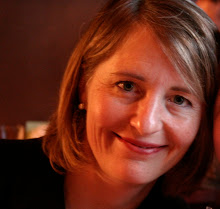 Lars Gjeldaker never visited America. He never rode the train across the country, never watched the landscape flatten under tall grass, never saw a lone stand of cottonwoods on the horizon.
Lars Gjeldaker never visited America. He never rode the train across the country, never watched the landscape flatten under tall grass, never saw a lone stand of cottonwoods on the horizon.
But he had a bird's-eye view of life at the Lillehaugen farm.
In February 1892, Sigrid reported, "The crops were good last year, the first wheat harvest in Dakota. Now we will see if it will be better here. Some have given up their land and moved away. Tosten and Micheal have much work in the barn, as we have many animals. They also bought a team of horses. There is much to buy when a man is beginning to farm, and here it is expensive. Machine and tools we need, but we are afraid to buy before we can pay."
In October, she sent another update with details on yields and prices.
"This summer we have had the best and nicest weather, so for the first time we got a good crop. Now we have threshed and plowed. They have left to haul the wheat to town before winter comes, because then it is best to hibernate like the bear.
We got over 800 bushels of wheat, 400 oats. The wheat is worth 50¢ a bushel. Low price! Now we have to sell wheat to pay for the horses we bought last fall for $200, and threshing cost $52. We had a man during threshing for two dollars a day. So that’s the way it goes with the money. It goes here and there.
But we are satisfied that God has helped here. This year I guess there has been very bad weather at many other places. Through the summer we sold eight cattle. We have 22 left and we have enough hay for them. We have mowed quite a bit, Micheal has done most of the mowing and raking. Grandfather should see how big and smart a man he has become this fall. Now he is going along with Father and drive to town and they will both have teams."
She adds, "Lars has to watch the cattle and that is not so good now with prairie fires all around the places."
A few years later, another prairie fire will alter their lives forever.
 A few years ago, I stood at the window in a hospital room watching traffic. Outside was life, inside was illness and eventually, death.
A few years ago, I stood at the window in a hospital room watching traffic. Outside was life, inside was illness and eventually, death.






